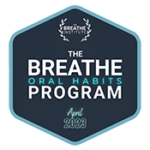Did you know that giving sugary liquids to infants and young children can cause tooth decay?
Oral health is crucial to a child’s overall health and well-being. Early childhood cavities or bottle-feeding syndrome can have serious consequences.
Today we will look at how feeding bottles and tooth decay are connected.
We will cover topics including the risks of untreated cavities in baby teeth and how parents can prevent early childhood caries (cavities).
Cavities in babies and young children are called early childhood caries or bottle-feeding syndrome.
This starts when sugary liquids like milk or juice are given to the child in a bottle.
The sugars stick to the teeth, and bacteria in the mouth break them down into simple sugars.
This leads to higher acidity in the mouth and causes the teeth to lose minerals and eventually decay.
How can Bottle Feeding Result in Cavities?
If a child sleeps with a bottle filled with anything other than water, it increases their risk of getting early childhood caries.
This is because the liquid contains lots of sugar that can damage their teeth.
Repeated exposure to sugar is worse than drinking sugary drinks occasionally.
Some parents dip their child’s pacifier into sugary syrups or juice to calm them down, but this can also harm their teeth.
While the child keeps the pacifier in their mouth, their teeth are constantly exposed to sugar that can cause decay.
What Are the Symptoms?
The farthest teeth in the back of the mouth, with more of a flat surface, are most likely to become infected with caries.
The upper anterior teeth are the most commonly affected by caries; however, the lower anterior and posterior teeth are also vulnerable.
The symptoms vary depending on severity and location.
- Toothache
- Tooth Sensitivity
- Mild to sharp pain when eating or drinking something sweet, hot, or cold
- Visible holes or pits in their teeth
- Brown, black or white staining on any surface of a tooth
- Pain when biting down
As a parent, you may not be aware that your child is forming a cavity until it is already present, requiring a fill.
This is why beginning your child’s dental visits at age one is essential.
The possible consequences
Pain and discomfort
Cavities can cause pain and discomfort, making it difficult for the child to eat, sleep, and speak.
Infection
Untreated cavities can lead to infections in the gums and teeth, which can spread to other parts of the body.
Tooth loss
Severe decay can lead to the loss of baby teeth, which can affect the development of permanent teeth.
Malnutrition
If the child experiences pain and discomfort while eating, they may avoid certain foods, leading to malnutrition and other health problems.
Speech problems
If the child loses teeth prematurely, it can affect speech development.
Psychological effects
Tooth decay and loss can affect the child’s self-esteem and confidence, leading to social and emotional problems.
Financial burden
Treating cavities and other oral health problems can be expensive and financially burdensome.
How to Prevent It?
One great way to prevent this syndrome is to create specific feeding times for your child.
Rather than letting them snack on the bottle all day long, try limiting their bottle time to shorter intervals.
You can also consider buying juices made specifically for children with less sugar or diluting their juice with water to lower the sugar intake.
Another important step is habitually brushing your child’s teeth as soon as their first teeth appear, usually around six months old.
It’s essential to remember that their teeth become vulnerable to dental caries as soon as they emerge.
If your child relies on a bottle to fall asleep, try switching the juice with water, and work on gradually weaning them off the bottle altogether.
It’s also recommended to take your child to the dentist once their pearly whites start to show, usually around the age of one.
Regular dental checkups are critical to prevent the development of caries, which can often go unnoticed until it has progressed to an advanced stage.
Management
Milk teeth, or primary teeth, will eventually be replaced by permanent teeth. And if those permanent teeth are expected to erupt soon, the milk teeth may not even need restoration.
But here’s the thing – if your child loses their primary teeth at a super young age, their permanent teeth might be misaligned or crooked.
That’s why taking care of your child’s milk teeth is super important, not just for their adult teeth, but for their overall oral health too!
Instilling healthy oral habits early on can help set your child up for success and ensure their teeth remain healthy and strong.
So there you have it – correcting dietary habits and caring for those milk teeth is key to managing your child’s oral health. Keep up the great work!
Final words
Creating specific feeding times, choosing the right juices, developing a brushing habit, and weaning your child off the bottle are all great ways to prevent bottle-feeding cavities.
Schedule regular dental checkups to ensure your child’s teeth remain healthy and strong!
Call us today to discuss your child’s teeth and how we can work together.
- Call us at 509.252.4746
We are proud to serve the people of Spokane, WA, and welcome visitors from the neighboring areas.










